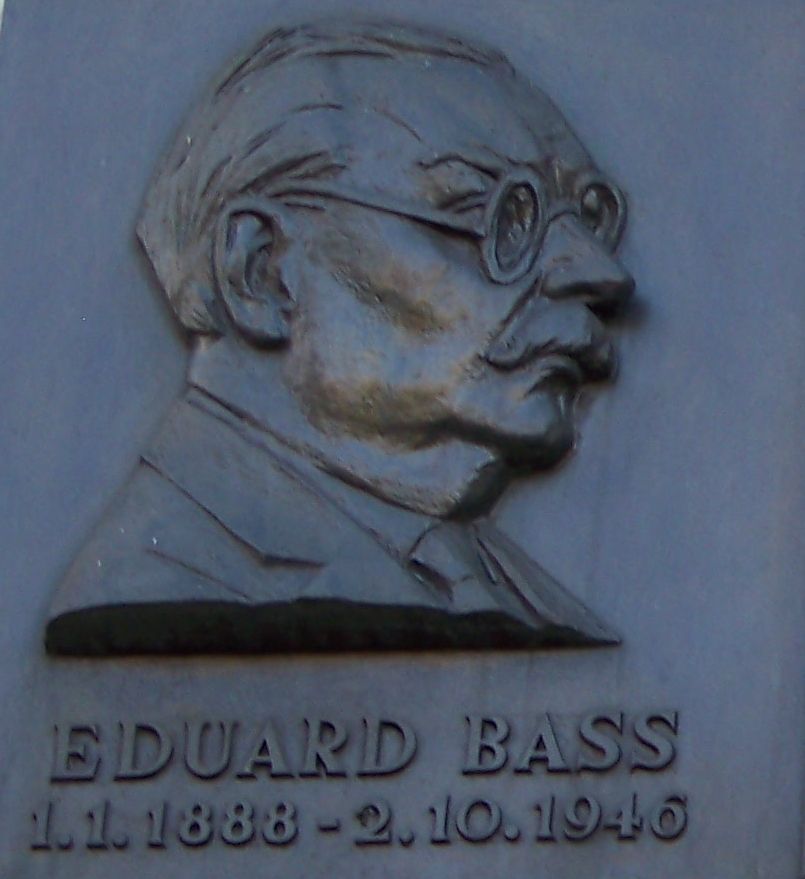Journalist Eduard Bass can be a writer as well as a singer and cabaret reader. His crowning achievement is Circus Humberto.
Curriculum Vitae
Eduard Bass was born on New Year's Day 1888 with the name Eduard Schmidt. His father owned a brush company, which he did until then First World War he posed a risk to the young Bass' future employment. In 1905, he graduated from the business academy near Mariánské náměstí, after which he began studying chemistry at the Prague Technical University. In parallel, he began working at his father's factory. He worked as a sales representative for a brush company until 1916, when the company went bankrupt. Meanwhile, Bass was able to use his position to tour European cities, visiting the capitals of Germany, Austria, and Italy.
Basic info
Born: January 1, 1888, Prague
Death: October 2, 1946, Prague
Family: wife Táňa (née Kryková)
The experience at the cultural center influenced his subsequent career. While still fulfilling his father's career wishes, he became familiar with the cabaret or shantan environment. Already in 1907, his first attempts to appear in entertainment companies began. It started at U Bílé Labutě's house on Na Poříčí Street. This first performance of recitations with Czech poetry carried his artistic pseudonym Bass. In 1912, he was an entertainer (or entertainment guide) in the Lucerna halls, and in 1913 to 1920, his “home” stage was the Červená sedma cabaret, which was considered to be in the top league. Bass combines literary performances with theatrical performances, recitation with acting.
In 1915, he married actress Táňa Kryková, who later became a sculptor.
Their original cottage at the edge of the forest still stood as it had when he started training the boys, only now it was well repaired, cleaned and decorated like a cute little nest. But the surrounding environment has changed a lot. From the meadow, where the ball first thundered, kicked by Clappertooth's feet, an exemplary training ground with dressing rooms, gymnasium and showers was arranged, where secretaries and presidents of all clubs came to see the perfection of all the equipment. The elder Klapzuba gradually purchased surrounding land to build houses for each of his sons. It was a cheerful little stable of several rooms, with garden and yard, a whole family colony, much talked about in the region and photos of which were published in illustrated magazines all over the world. The boys themselves did not understand why their father had started this construction. They were at their best when they were together and it never occurred to them that one day they would be torn apart and everyone would live on their own.” from the book Klabzub's Eleven
Edward Bass
During the war, he was rescued from deployment due to lack of health and worked as a typist at the military hospital in Hradčany. Thereafter, as soon as his father's business ended (his father also died at that time), he began to devote himself completely to cultural production. He became the director of the Rokoko cabaret and began working as a journalist when he began contributing to magazines, often satirical in nature such as Šibeničky. Before the 1920s, his texts appeared in the Nova era, lists of People's Rights or Humoristich.
The First Republic marked a change when he joined the editorial staff in 1921 People's Newspaperwhere along with Karl Čapek acts as a guarantor of high literary quality. As editor, he contributed to the genres of feuilleton, reportage, assessment, or criticism. He is credited with the authorship of the radio station, witty and experienced commentary. Together, they championed the democratic and liberal nature of the newspaper, which was particularly anti-fascist in the 1930s. From 1933 to 1938, Bass served as editor-in-chief of Lidové noviny. In mid-1941, cooperation with the newspaper ended.
In the late twenties, he managed successfully the magazine Světozor, after which it ended Second World War entered into the management of Svobodné noviny, which was the new name of the former Lidové noviny, which was required for permission to continue operating. However, he did not stay here long, for health reasons he first got an editorial position, then he died in October 1946, the day he still had time to write his last article.
The work of Eduard Bass
The basis of Bass's literary work is humor. An optimistic approach to the world is reflected in cabaret and prose anecdotes. At the same time, the first documented literary works followed his experiences on stage. He published a set of simple joke songs (called verses) in 1916 under that name Pegasus is fried sideways. Publication followed in 1917 How do you do cabaret?one-act detective drama Necklace and short stories Fannyk and other funny stories.
Overview of the most important works
Humberto's Circus, Klabzub's Eleven, Maringoteka People
A fundamental prose breakthrough occurred in 1922 with Klabzubová eleven, in which he celebrates his casual enthusiasm for sports, as the father of eleven children forms a football team from his offspring and tries to achieve success with his own perseverance and tenacity. Their own brotherhood then protects them from the snares of the world. Traveling around the world and playing tournaments with professional teams, which they beat even by absurd margins, eventually leads them to the island of cannibals. Bass's exaggerations are reflected in the detail and level of the story as a whole.
In subsequent years, carrying out a journalistic mission, he published small matters, again based on a cabaret style. In the thirtieth year Arbes didn't write that, Vrchlický didn't write poetry or Artists, visitors and other guests.
During the occupation during the Second World War, which meant a gradual decline in his editorial work, he created the most important work of his life. Novel Humberto Circus published in 1941. In the novel chronicling three generations of circus performers, he captured the collective power in the creation of joint works, such as circus, while strengthening national awareness of Czech tenacity and strength in unity. Additionally, this is a heart themed piece for Bass. In 1988, a popular twelve-part television series by František Filip was created based on the book, with a script Oldřich Lipský as Jaromir Hanzlik in the main role.
A year after the creation of Circus, Humberto added ten short stories from the same setting People from Maringoteka. Some of his works were published posthumously. He himself prepared it better Crossroads in Prašná brány (1947) but then things like that Short story Which radio station from the fifties or Peephole from the seventies hosted by someone else.

“Tv nerd. Passionate food specialist. Travel practitioner. Web guru. Hardcore zombieaholic. Unapologetic music fanatic.”







